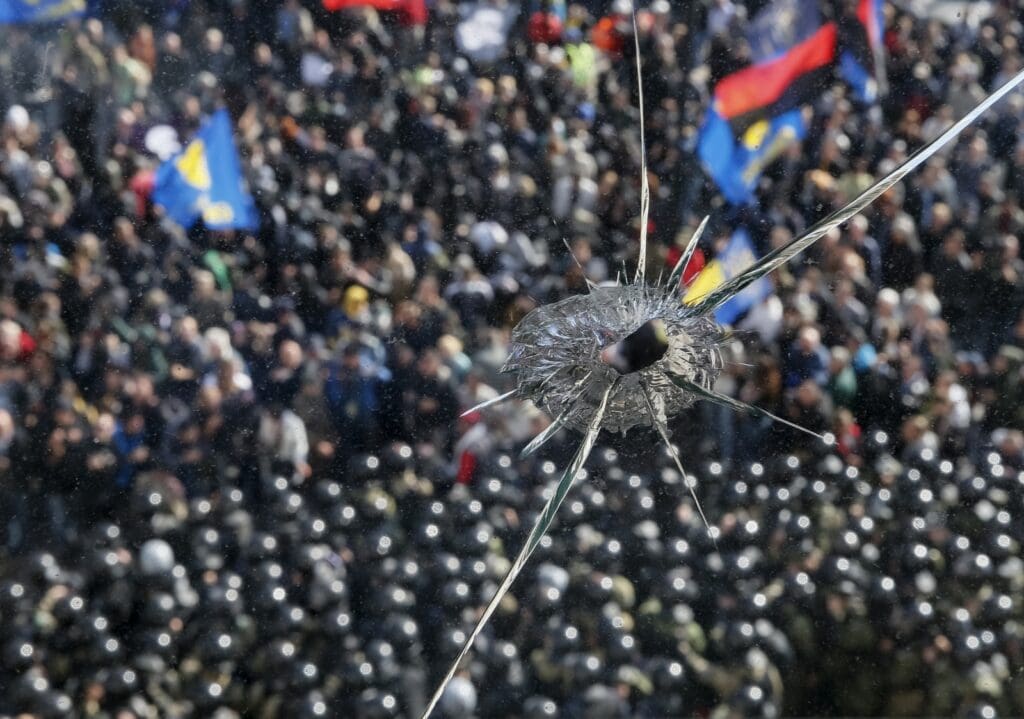Blog
Blog
Transparency Reporting for Smaller Platforms
April 15, 2020By Tech Against Terrorism Transparency reporting is an important way for the tech sector to increase awareness of its internal content moderation decision-making processes. Reporting can also increase transparency around information and takedown requests made of tech platforms by external entities, such as law enforcement agencies or governments. With regards to terrorism and online terrorist ...
Blog
The National Security Implications of Extreme Misogyny
April 8, 2020By Elise Thomas Online radicalisation has been a significant point of focus for the national security community in recent years. Much of this attention has been directed, rightly, at the risks posed by Islamic extremism, far-right extremism and white supremacist movements. However, far less attention has been paid to an equally dangerous and arguably more ...
Blog
How Memes are Becoming the New Frontier of Information Warfare
April 1, 2020By Tom Ascott Everyone has seen a meme, whether they know it or not. They’re everywhere on Facebook, Twitter and Instagram. The most popular ones make it off the Internet and show up in newspapers, television shows or films. You’ve almost certainly seen Pepe the Frog, and if you haven’t seen the classic ‘Woman yelling ...
Blog
Understanding the Human Rights Risks Associated with Internet Referral Units
March 26, 2020By Jason Pielemeier and Chris Sheehy Since 2010, a small number of European governments have created formal, government structures for flagging alleged terrorist content directly to companies for voluntary removal under their respective terms and conditions. A review of these Internet Referral Units (IRUs) conducted by the Global Network Initiative, with help from Harvard Law ...
Blog
Christchurch’s Legacy of Fighting Violent Extremism Online Must Go Further – Deep into the Dark Web
March 18, 2020By Dr. Joe Burton It didn’t take long for a terrorist to show how hard it is to prevent violent extremist content being shared online. Within six months of the attacks at two Christchurch mosques on March 15 last year, which were live streamed on Facebook, a far-right terrorist’s attack at a German synagogue was ...
Blog
Technology and the Swarm: A Dialogic Turn in Online Far-Right Activism
March 11, 2020By Dr. William Allchorn In late January this year, the outgoing director general of the UK’s domestic intelligence agency, Sir Andrew Parker, suggested that technology was one of the biggest challenges facing the UK’s Security Services. Sir Andrew said he was particularly interested in artificial intelligence “because of our need to be able to make sense of ...
Blog
Is ISIS Dead or Alive?
March 4, 2020By Moign Khawaja It has been almost two years since the Islamic State, also known as IS or ISIS, lost its final stronghold in eastern Syria and four months since its leader Abu Bakr Al Baghdadi was killed in a US military raid. Have these two game-changing events led to the demise of the group ...
Blog
From the French Revolution, the First Amendment and the Third Reich to Twitter and Facebook: The Impact of Legal Histories on the Fight Against Online Extremism – Part 3: Germany
February 26, 2020By Nery Ramati The need to develop legal tools in order to cope with the dangers of online extremism and terrorism has been an issue that has kept legislators, government officials, and security forces around the globe very busy in recent years. In liberal democracies, the legal challenges are intensified due to the obvious dangers ...
Blog
From the French Revolution, the First Amendment and the Third Reich to Twitter and Facebook: The Impact of Legal Histories on the Fight Against Online Extremism – Part 2: The United States
February 19, 2020By Nery Ramati The need to develop legal tools in order to cope with the dangers of online extremism and terrorism has been an issue that has kept legislators, government officials, and security forces around the globe very busy in recent years. In liberal democracies, the legal challenges are intensified due to the obvious dangers ...
Blog
From the French Revolution, the First Amendment and the Third Reich to Twitter and Facebook: The Impact of Legal Histories on the Fight Against Online Extremism – Part 1: France
February 12, 2020By Nery Ramati The need to develop legal tools in order to cope with the dangers of online extremism and terrorism has been an issue that has kept legislators, government officials, and security forces around the globe very busy in recent years. In liberal democracies, the legal challenges are intensified due to the obvious dangers ...









